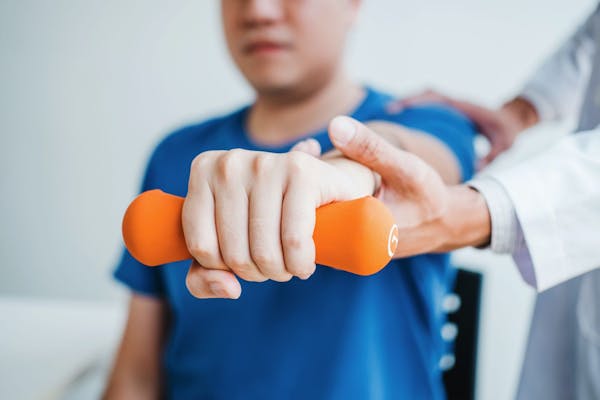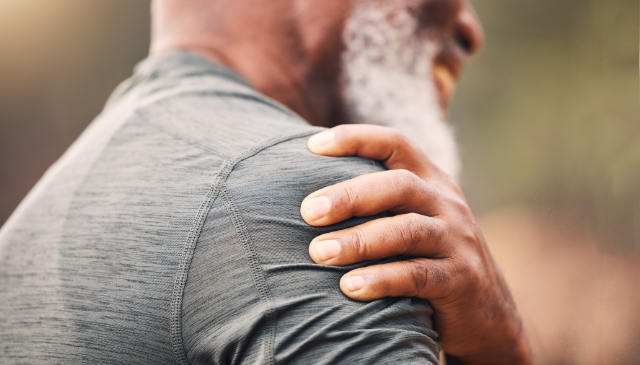Lymphedema is a swelling that typically occurs in the upper or lower extremities, due to an excessive buildup of lymph fluid. Your lymphatic system is part of your circulatory system, and it is a network of vessels that carry lymph fluid towards the heart. The lymphatic system is an essential part of your immune and circulatory systems.
When a blockage happens in your lymphatic system, swelling of your arms or legs may occur, as the fluid is not able to drain properly. Improper drainage results in a build-up of the lymph fluid in your arms and legs, which can generate adverse health risks. If you are suffering from lymphedema, contact AIM Rehab Services today to find relief!
How do I know if I have lymphedema?
There are two categories of lymphedema: primary lymphedema, meaning it occurs on its own, and secondary lymphedema, meaning it occurs as a result of an alternative disease or condition.
Lymphedema typically occurs as a result of surgical treatment involving the lymph nodes. It is most common in surgical cancer treatments where the lymph nodes are removed or damaged. However, the cause of primary lymphedema isn’t always clear, and your physician may want to take additional imaging tests in order to look at your lymphatic system. This may include an MRI scan, CT scan, Doppler ultrasound, or lymphoscintigraphy.
The most common causes of secondary lymphedema include:
- Surgery
- Cancer
- Radiation treatment for cancer
- Infection
There are also a handful of symptoms that accompany lymphedema that could serve as indicators that you may have developed this condition. Keep in mind that it can sometimes take months or even years for lymphedema to develop as a result of cancer treatment.
Symptoms typically occur in the arms and legs, and they range from mild (noticing subtle changes or feelings in your limbs) to severe (noticing extreme changes or feelings in your limbs, to the point where they may be difficult to use).
Some common symptoms to look out for include, but are not limited to:
- Swelling
- Aching/discomfort
- Restricted range of motion
- Heaviness/tightness
- Infections
- Fibrosis
How is lymphedema treated?
With chronic swelling, there are many risks, including circulation issues, the risk of infection, and potential for future injury. It is very important to receive treatment for lymphedema and to follow up with your doctor and physical therapist on a routine basis.
At AIM Rehab Services, we will design a personalized treatment plan to treat your lymphedema. This plan will be dependent upon your physical evaluation, health history, and the severity of your symptoms. For lymphatic treatment plans, the focus will be put strongly on manual therapy and light exercises.
A special type of manual therapy referred to as “manual lymph drainage” is commonly used for patients with lymphedema. It encourages the flow of lymph fluid in your upper and lower extremities, and additional massages may be used to increase circulation and provide relief.
Exercising the affected limb(s) also encourages lymph fluid drainage. Your exercise plan will be designed by one of our Coral Springs, FL physical therapists and will involve gentle contractions of the muscles to regain function and improve your range of motion.
Additional treatments, such as wrapping, compression, or complete decongestive therapy may also be added to your treatment plan as our physical therapist deems fit. Contact Us Today at Coral Springs, FL Center if you are dealing with lymphedema and need some relief. AIM Rehab Services will help reduce your lymphedema symptoms and improve your daily life. Your pain-free movement starts here!



